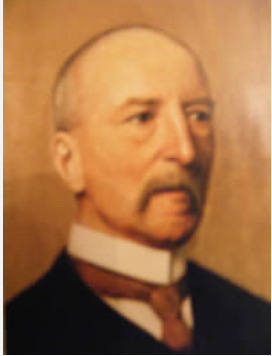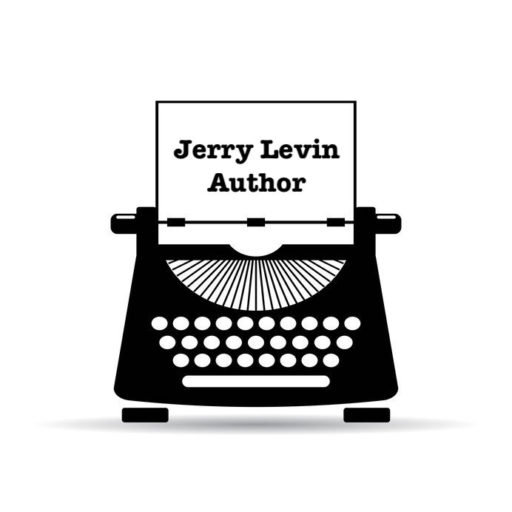Reading time (250 wpm): 4 minutes.

Background
Thomas Troward (1847-1916) was a British judge who worked in Punjab, India for several years. He studied comparative religion while he was there and applied his skills as a judge to look for the deeper truths. Many consider him the grandfather of Western “New Age” thought. Several early twentieth-century metaphysicians like Emerson, Fillmore, Holmes, and others studied his writings.
I was reminded of the power that his writing had for me from a recent talk I attended by Laura Topper. (For more information on Laura’s work see her website.)
Troward’s writing can be difficult to read. His sentences sometimes run on for pages. And that judgment comes from someone whose sentences can run on for several lines if he’s not careful.
First Quote
I am very fond of a lot of Troward’s writings, especially The Edinburgh Lectures on Mental Science. This book is a transcription of a series of talks he gave in Edinburgh in the very early years of the twentieth century. Many spiritual speakers and writers of that era referred to God by other names. Troward frequently refers to God as First Cause.
We are all familiar with the idea that A causes B, which causes C, which leads to D, and so on. Why did this happen? Because of that. Yeah, OK, but why did that happen? Because of the other thing. According to this line of thinking, everything is both a cause and an effect.
Troward’s reference to God as First Cause implies that God is The Cause of all that is. If you trace everything back far enough, you will always wind up with The Cause or First Cause. Many ideas can spring from this key concept, including the idea that we all, each and every one of us, stem from the same Creative Source, which is God.
In Chapter 9 entitled Causes and Conditions, Troward says:
If we regard the fulfilment {sic} of our purpose as contingent upon any circumstances, past, present, or future, we are not making use of first cause; we have descended to the level of secondary causation, which is the region of doubts, fears, and limitations, all of which we are impressing upon the universal subjective mind with the inevitable result that it will build up corresponding external conditions. {pg 67}
This is such a profound statement of the principles of metaphysics.
This quote also stirs up lots of critical comments from the Voice in my Head, like: “What about all the terrible things that happen in the world? Did God cause all of that?”
My answer to the Voice is that God created humans as a mix of positives and negatives with free will choice so that we could figure out what works best for us. In the process of this learning, there is some pain and some joy. Those feelings help reinforce the lessons. I don’t always like that answer, but it gives me peace of mind that there is a benevolent, loving Source behind all this pain and confusion.
What does that quote bring up for you?
Second Quote
The word principle in the previous sentence reminds me of another favorite quote from Troward, this one quite terse. In the Foreword of his book The Creative Process in the Individual, he says:
Principle is not bound by Precedent.
Here, he is referring to God as “Principle”. That name for God points to God as the foundation of the Universe, that on which all else is created.
Both of these quotes strip away my excuses for not doing what I believe I am meant to do like giving up some bad habits, like procrastinating on challenging projects, etc. The first quote reminds me that I get to choose what foundation I stand on. Am I a child of God or a child of my time? If I am subject to the conditions I was born into, I am saddled with the limits of my parents, my family, my culture, and the times I have lived through.
As a child of God or Spirit, those are conditions and not limits. They describe my times and my past but don’t define me. When I remember that I am literally a child of God, I know that the only limits that exist for me are the ones that I accept as real.
The second shorter quote wipes out one of my favorite excuses: “But I never have been able to … “.
“Principle is not bound by Precedent” reminds me that God is never stuck repeating what has happened before. Think about it: no two fingerprints are alike. No two snowflakes are alike. No two people look exactly alike. So, the fact that I have not been able to do something before is irrelevant, even if I have been unsuccessful a hundred times before. It just doesn’t matter because creation is not transformation.
Most of what we humans do is transformation, but we often still call it creation. According to my definition, creation is making something out of nothing, literally out of no thing. Transformation is changing this into that, one thing into a different thing. So, when making a cake or creating an iPhone, we are changing raw materials into a finished product. In that case, the quality of the raw material matters because that is transformation not creation.
However, when God creates something (some thing) It does so from nothing (no thing). In that case, there are no raw materials other than energy. And so what has been (or not been) before is *irrelevant* to the Creative Process.
The scientist in me is rebelling at this metaphysical woo-woo stuff I am writing. But the child in me is smiling in sweet repose.
These ideas, which I haven’t thought about in quite a while, reassure me that my dreams are still achievable, just as achievable as when I first claimed them as dreams of mine. These quotes remind me that everything that has ever been done was one time something that never had been done. And things that seemed impossible even to imagine twenty years ago are common occurrences today.
What about you? What does all this mean for you? I’d love to hear your understanding from where you stand.


Thanks for this Jerry. I was intrigued during Laura’s talk. I am unfamiliar with Trowatd and will do some research!
Troward is a hard read and yet I think it is worth the effort. Thanks again for you comments.
I love the quote, “Principle is not bound by Precedent.” I find this also applicable to tasks I don’t consider myself skilled in (or really enjoy) but find useful to learn in order to become a more successful entrepreneur. Thanks for sharing. I’m curious to check out Troward’s work.
That is a great application of the pearl of wisdom. It is amazing to me that one of his most powerful quotes is so short and most of his sentences and paragraphs are LONG. It is worth the read to work through his essays. They are powerful.
Thank you Jerry – It’s always reassuring to read that we are all connected. . .
I couldn’t agree more. Thanks for sharing your feelings. Glad you are part of my connections.